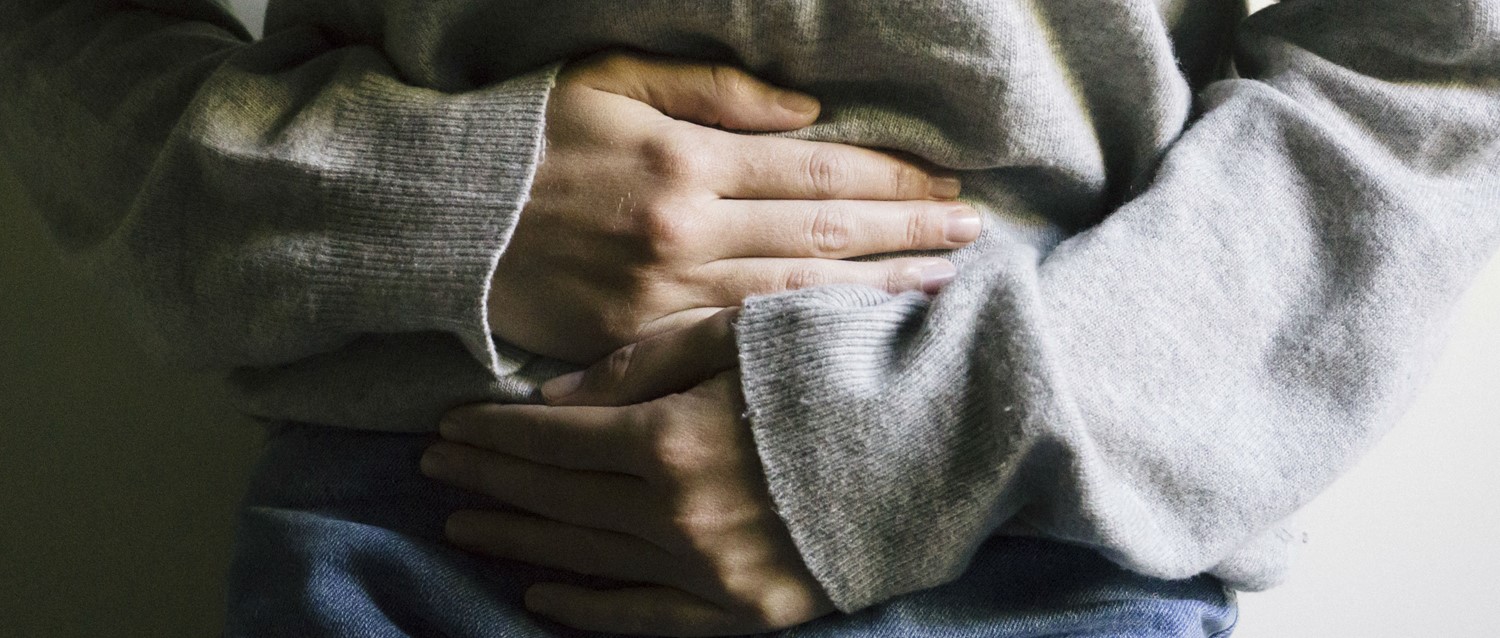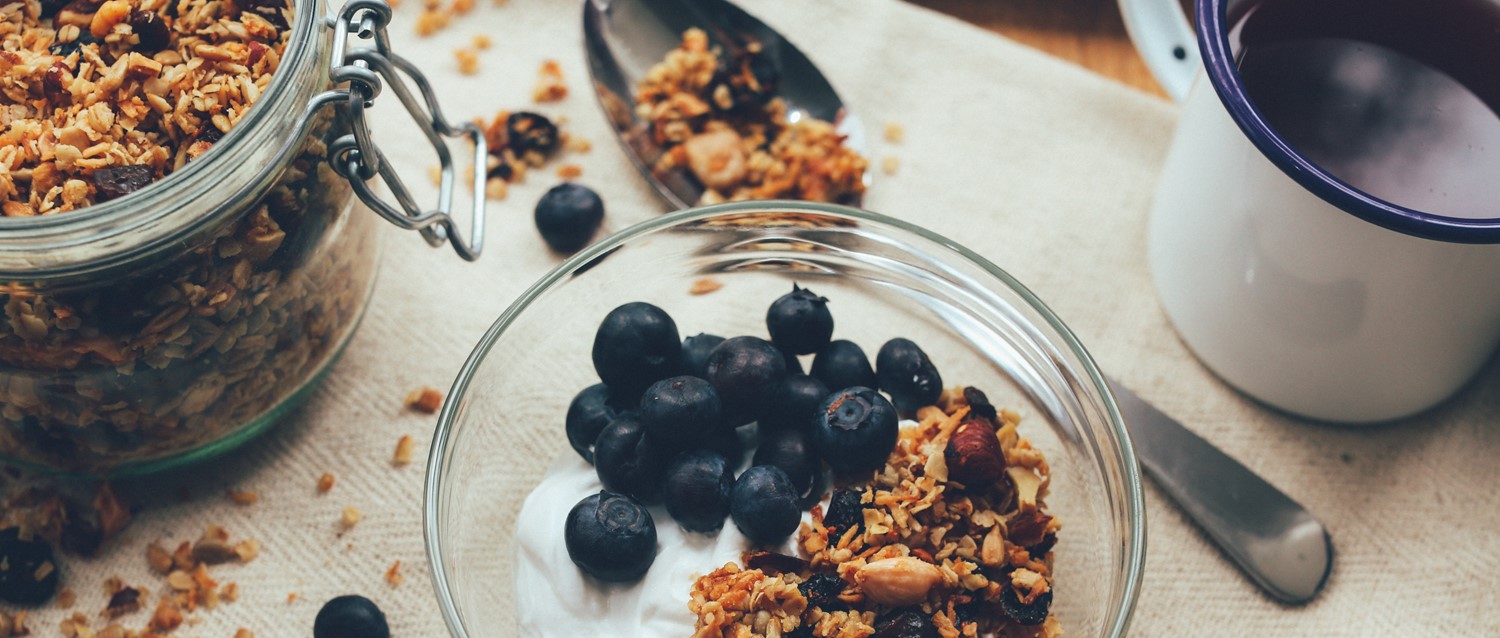
What's the link between anxiety and gut health?
Peer reviewed by Dr Sarah Jarvis MBE, FRCGPLast updated by Abi MillarLast updated 6 Nov 2021
Meets Patient’s editorial guidelines
- DownloadDownload
- Share
- Language
- Discussion
Many of us have first-hand experience of the way stress impacts our digestive system. But might it work the other way round too, and might improving our gut health help our mental health?
In this article:
If you've ever had 'butterflies' in your stomach, or have described yourself as being 'sick with nerves', you'll be aware of the connection between anxiety and gut health. Stress is a bodily experience as much as a mental one, and there is a lot of truth encoded in sayings like "I feel it in my gut".
For some people, this might manifest as needing to rush to the toilet in nerve-wracking situations. For others it might mean a double-whammy of gut symptoms and chronic stress. There's a well-known link between anxiety disorders and conditions like irritable bowel syndrome (IBS). In one study, 44% of patients with IBS also suffered with anxiety.
"Anxiety and stress activate the 'flight or fight' response, which can affect how the digestive tract functions and how it feels," says Dr Ayesha Akbar, consultant gastroenterologist at London Digestive Centre, Princess Grace Hospital (part of HCA Healthcare UK). "Stress hormones may also affect the barrier function of the gut and impact the bacterial balance. Symptoms may include heartburn and indigestion, abdominal cramps and pains, fullness, bloating, nausea, diarrhoea or constipation."
The mystery of the gut-brain axis
Even though many of us have first-hand experience of this connection, it's only recently that scientists have begun to understand it in much depth. The so-called 'gut-brain axis' - the communication network between the gut and brain - is now one of the hottest topics in scientific research, and it has important implications for our physical and mental health.
"Our gut contains direct communication pathways to the brain so they are constantly communicating," explains dietitian Sophie Medlin, founder of City Dietitians. "It isn't in any way the sufferer's fault if their anxiety causes gut symptoms or if their gut symptoms cause anxiety. These two things go hand-in-hand by design."
The key thing to recognise is that this communication goes both ways. As well as being lined with some 500 million nerve cells, the gut 'talks' to the brain through the vagus nerve. The gut also produces an array of different hormones, which send their own signals to the brain. Last but not least, the bacteria in the gut (the microbiome) play a role in regulating this mysterious connection.
"When our digestive processes are affected by stress over the long term, the environment in our colon becomes more favorable to bacteria that cause conditions like IBS," says Medlin. "We have also recently learnt that our gut bacteria interact with our brain by producing neurotransmitters. This can make anxiety and depression better or worse depending on which bacterial species are more common in our body."
In other words, your gut health can influence your mood, just as your mood can influence your gut health. Which comes first is something of a chicken-egg question. Many people develop GI symptoms during times of stress, only to become even more stressed because of their GI symptoms.
Happy gut, happy mind?
Back to contentsThis raises an intriguing question: might improving our gut health also help reduce our levels of anxiety? Increasingly, scientists think it might. Although it is early days for this line of research, a number of studies have found that anxiety might be improved by regulating the gut bacteria.
Some studies have found that probiotics ('good' bacteria found in certain foods and supplements) can ease depressive symptoms, while others have found similar benefits from prebiotics (a kind of fibre that feeds the 'good' gut bacteria). Still others have found strong links between the kind of food we eat and our state of mind.
"There is plenty of evidence that eating well can improve anxiety, alongside a prescribed treatment and on its own," says Medlin. "This may be due to having more of the important nutrients that improve our brain function, but it is also likely to be because the good bacteria that help us to manage anxiety more effectively are being fed and are increasing in numbers."
Dr Federica Amati, nutritionist and Chief Nutrition Scientist for Indi Supplements, agrees our gut-brain axis is a powerful tool to treat anxiety.
"Foods that nourish our microbiome help serotonin production and reduce our stress response," she says. "Reviews have shown the beneficial impact of Mediterranean Diet patterns on symptoms of anxiety, and this fits in with our knowledge of the microbiome and gut-brain axis."
Continue reading below
Foods to try
Back to contentsSo what should we be eating if we want to look after our gut health - and by association, our mental health? Dr Amati remarks that increasing whole plant foods (vegetables, pulses, nuts, whole grains, whole fruits etc) has been shown to have a significant impact on anxiety.
"Try eating seasonally to try new vegetables and fruits, add nuts and seeds to your salads or yoghurt and use herbs and spices in cooking," she says. "Polyphenol-rich foods like berries and extra virgin olive oil should be part of our everyday diet, and we should aim to consume probiotic foods like kefir, kombucha or sauerkraut every day."
Dr Akbar adds that foods rich in prebiotics and probiotics can help to keep your gut happy.
"Foods that are rich in fibre and probiotics can help to support good digestive health and add diversity into your gut microbiome," she says. "Examples include yoghurt, apples, fennel, kombucha, miso, whole grains, and dark green leafy vegetables. A diet rich in prebiotic food, such as bananas, garlic, asparagus, artichokes, oats and apples, can also help to restore gut bacteria."
Medlin recommends taking a good-quality multivitamin supplement during times of stress, to ensure you're not running up any deficiencies.
"When we are anxious, we use up nutrients like B vitamins more quickly," she says. "B vitamins are essential for effective communication between our brain cells, and deficiencies are known to cause mood changes and disorders. B vitamins are most reliably found from animal sources such as dairy foods, eggs and meat but there are some in beans and pulses and fortified plant-based foods."
As for what you should avoid - it's a good idea to cut back on refined sugar, which can decrease the numbers of good bacteria in the gut and potentially increase inflammation.
Further steps to take
Back to contentsOf course, eating well is just one piece of the puzzle if you're dealing with anxiety. If your mental health is suffering, it's a good idea to talk to someone (your GP will be able to refer you for counselling, or you can refer yourself on the NHS). You could also try managing your stress through relaxation techniques, yoga or physical exercise.
Similarly, managing your mental health is only one piece of the puzzle if you're dealing with GI issues.
"If you are experiencing digestive symptoms that are causing you stress, you should see your GP in the first instance," says Dr Akbar. "They will be able to investigate and decide if you need referral to a digestive specialist. You will then undergo testing to determine the cause of your symptoms."
In the meantime, though, assessing your diet is a really important step. This may be easier said than done during times of stress and anxiety, when healthy eating is likely to fall down the priority list. Remember that you are worth the effort and time investment - your mind and body will thank you.
Patient picks for Gut health

Diet and nutrition
How your gut affects your overall health
We all know that when things aren't right with our digestion we can feel generally unwell. But evidence is mounting that the gut - which contains 70-80% of our immune tissue - could have an even greater impact on our overall health than once thought. It's time to listen to our gut feelings.
by Gillian Harvey

Diet and nutrition
Does aloe vera juice really help with gut health?
Numerous claims about the health benefits of drinking aloe vera juice have been made on social media. It can supposedly treat wounds, revitalise skin, and improve gut health. But how trustworthy is this advice?
by Emily Jane Bashforth
Article history
The information on this page is peer reviewed by qualified clinicians.
6 Nov 2021 | Latest version
6 Nov 2021 | Originally published

Ask, share, connect.
Browse discussions, ask questions, and share experiences across hundreds of health topics.

Feeling unwell?
Assess your symptoms online for free
Sign up to the Patient newsletter
Your weekly dose of clear, trustworthy health advice - written to help you feel informed, confident and in control.
By subscribing you accept our Privacy Policy. You can unsubscribe at any time. We never sell your data.